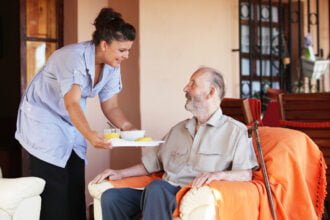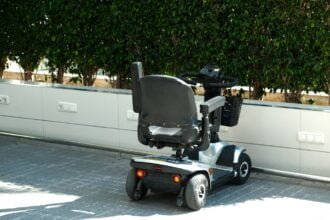The journey to recovery after surgery can be challenging for people of all ages, but for seniors, it often presents unique obstacles. There is a reason you need to do a lot to prepare for surgery.
As we age, our bodies may take longer to heal, and we may be more susceptible to complications. However, with the right support and care, seniors can significantly improve their chances of a successful recovery.
Let’s explore 6 expert-recommended ways to help seniors recover from surgery and get back to living their best lives.
1. Preparing for Surgery and Setting Realistic Expectations
Before a senior undergoes surgery, adequate preparation is crucial. Seniors and their caregivers should engage in open communication with the medical team to fully understand the procedure and its potential outcomes.
It is essential to set realistic expectations regarding the recovery process, as it may take longer for seniors to regain their strength compared to younger individuals.
Additionally, based on Verve Senior Living, medical professionals can optimize a senior’s health prior to surgery through a tailored pre-operative assessment. Managing chronic conditions, like diabetes or hypertension, and ensuring proper nutrition and hydration can improve the senior’s overall health and resilience, enhancing their ability to recover successfully.
2. Post-Surgery Rehabilitation and Physical Therapy
Physical therapy is a cornerstone of post-surgery recovery for seniors. Engaging in tailored rehabilitation programs can help seniors regain strength, flexibility, and balance. An experienced physical therapist can design exercises that are appropriate for the senior’s specific needs, ensuring a safe and gradual recovery process.
Physical therapy also plays a crucial role in reducing the risk of complications such as blood clots, pneumonia, and pressure sores, which are more prevalent among older adults during the recovery phase.
By promoting movement and circulation, physical therapy can enhance the senior’s overall recovery and quality of life. Make sure that you have these items to make your recovery easier.
3. Providing Proper Pain Management
Pain management is vital for seniors recovering from surgery. Effective pain control not only improves comfort but also promotes faster healing and facilitates engagement in rehabilitative activities. However, seniors are often more susceptible to the side effects of pain medications, such as drowsiness or confusion.
To address this, medical professionals should tailor pain management plans to suit the individual needs of seniors, considering factors like age, existing medical conditions, and potential drug interactions.
Integrating alternative pain relief methods, such as acupuncture or relaxation techniques, can also supplement traditional pain medications and improve overall pain management.
4. Preventing Infections and Complications
Seniors are more susceptible to infections and complications after surgery due to weakened immune systems and slower healing processes. Therefore, meticulous wound care and infection prevention are of utmost importance.
Caregivers should closely monitor surgical incisions for signs of infection, such as redness, swelling, or drainage. Keeping the wound clean and dry, as well as following the medical team’s instructions regarding dressing changes, can significantly reduce the risk of infection.
Moreover, ensuring seniors receive appropriate vaccinations, like the flu and pneumonia vaccines, can further safeguard their health and lower the likelihood of post-surgery complications.
5. Emotional Support and Social Engagement
Recovering from surgery can take a toll on a senior’s emotional well-being, as they may face feelings of vulnerability, anxiety, or depression. Providing emotional support and social engagement can have a positive impact on the recovery process.
Caregivers, family members, and friends should offer reassurance and encouragement, actively listening to the senior’s concerns and needs. Regular social interactions can prevent feelings of isolation and promote a sense of purpose, which can boost the senior’s overall mood and motivation to recover.
6. Ensuring a Safe and Accessible Home Environment
A safe and accessible home environment is essential for a senior’s post-surgery recovery. Simple modifications, such as installing handrails, removing tripping hazards, and ensuring proper lighting, can prevent falls and injuries.
Seniors may also benefit from assistive devices like walking aids or shower chairs to enhance their mobility and independence during the recovery process. By ensuring a safe and comfortable home environment, caregivers can contribute significantly to the senior’s recovery journey.
Helping seniors recover from surgery requires a comprehensive and tailored approach that addresses their unique needs and challenges. Make sure that you avoid the mistakes listed in this WebMD article.










